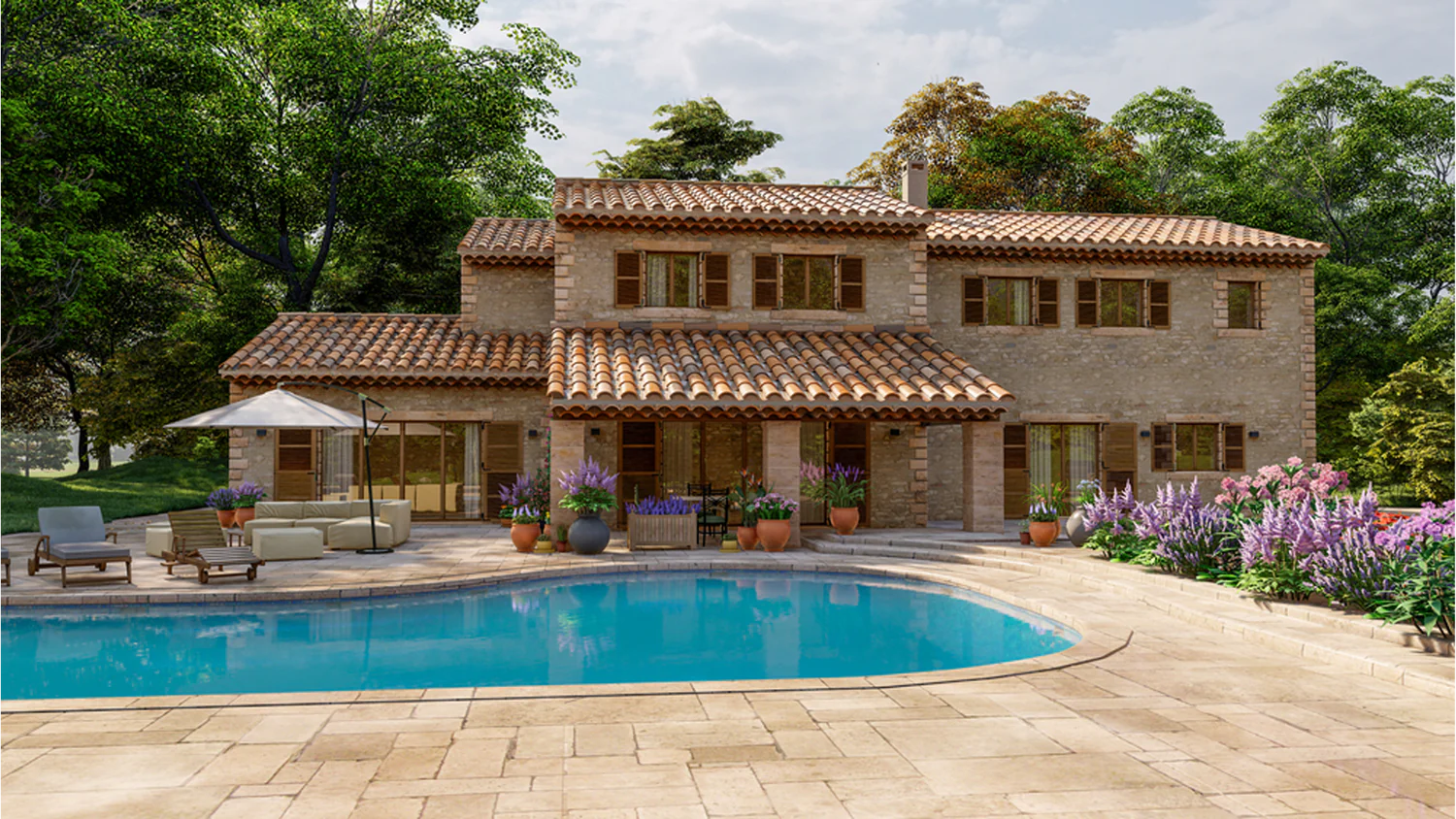What Tiles for Porches?

Density and Moisture
Porcelain tiles are more dense than other types of ceramic tiles. The ingredients are fine in particulate size, which makes them pack together tightly once manufacturers supply sufficient pressure. That density makes porcelain less likely to absorb moisture, a prime consideration for outdoor applications where tiles are subject to rain, snow, and ice. Glazed porcelain tiles offer even greater resistance to moisture absorption. While porcelain tiles are not completely waterproof, they have such a low rate of absorption that they resist water far better than ceramic or even stone. Avoid installing polished porcelain in areas where rain can make the tiles slippery.
Porch Traffic
Outdoor porches must withstand heavy foot traffic as well as furniture dragged along the surface of tiles. If the porch has stairs this is even more critical. Porcelain’s density makes it more resistant to damage that results from chips and scratches. Look for porcelain tiles that are fired with color throughout the tile rather than only on top. These are normally called full-body tiles. If the tiles that are colored throughout sustain chips or deep scratches, the damage is less noticeable.
Wear Rating
The Porcelain Enamel Institute established a rating system that helps consumers decide which ceramic tiles work best under which circumstances. While the rating system does not consider moisture resistance, it does rank tiles according to how well they hold up under various traffic situations. A PEI Class Rating between 1 and 5 assigns a numeric equivalent to how well each tile survives. The lowest end of the scale -- No. 1 -- contains tiles best used only on interior walls. All porcelain tiles rate at a No. 5, which is the top of the scale for wear resistance. Tiles ranking No. 5 on the scale may be used in any residential, commercial or industrial application, including outdoor porches and patios.
Cutting and Costs
Density makes for a moisture-resistant, chip-resistant porcelain tile, but it also makes the tile difficult to cut. Should you decide to install porcelain tiles yourself on your outdoor porch, consider renting a wet saw equipped with a diamond blade. These saws are strong enough to cut through porcelain with minimal tile breakage. As a result of the tile’s durability and moisture resistance, porcelain typically costs more than other types of ceramic tiles, but they can be worth it in the long run.
